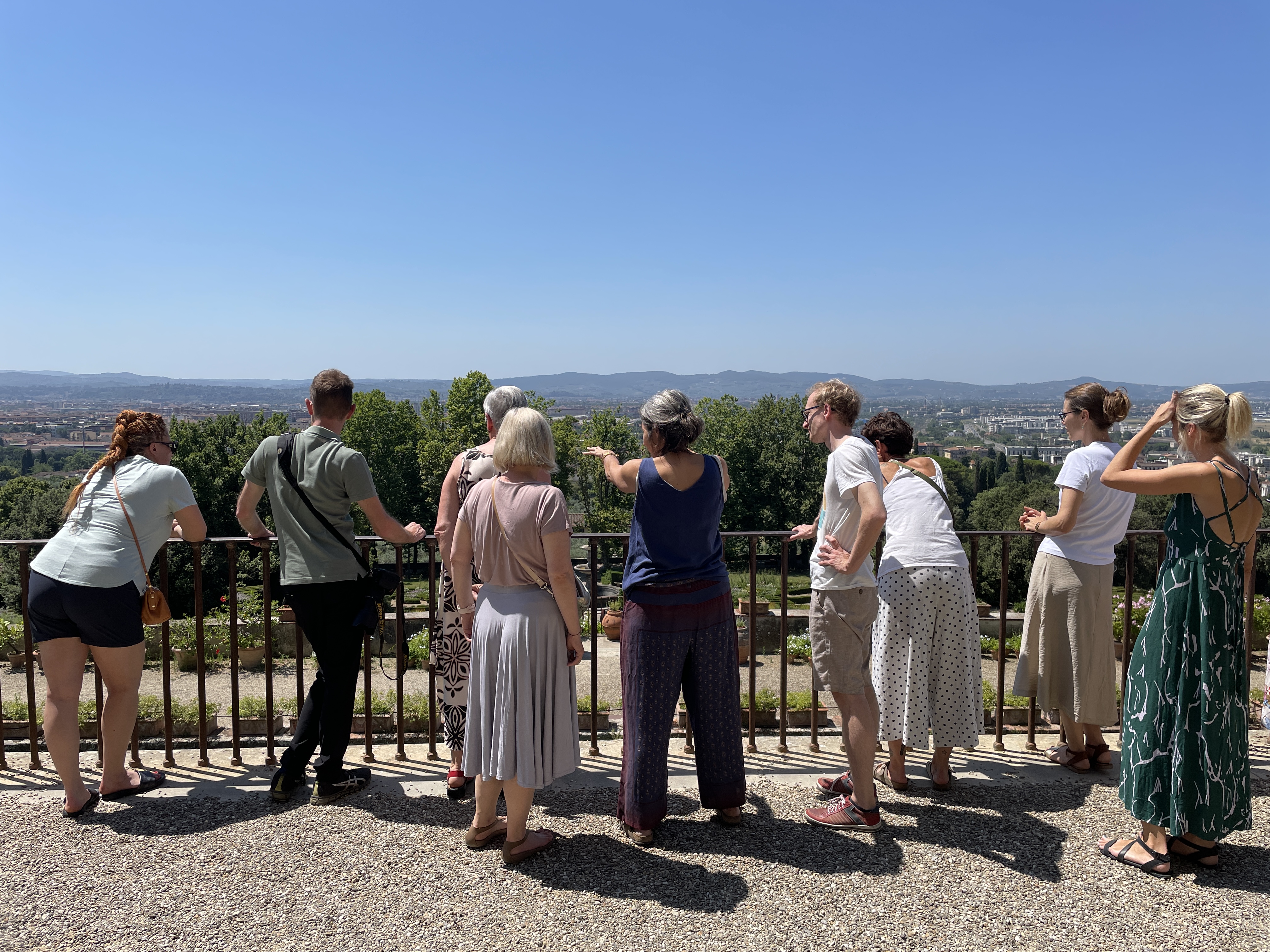
Joint training of educators with Stazione Utopia in Italy
In the Pillot project, July was marked by a successful joint training of educators in Florence, a beautiful Tuscan city full of culture in Italy. The training and project meeting was held on the 8th and 12th of July, and was hosted by the local partner - Stazione Utopia.
In total, 17 educators from Poland, Romania, Italy, Czech Republic, and Luxembourg were participating in this event focused on selected methods of introducing culture and language simultaneously in adult education of learners with migrant and refugee backgrounds. The central goal of the joint training meeting was to create an opportunity for educators from our partner countries to reflect, think together, and provide additional training and discussions on our chosen methods.
This learning and training mobility was the real highlight of the project so far.
This learning and training mobility was the real highlight of the project so far, as it enabled our educators who directly work with migrant and refugee learners to spend several intensive and productive days with diverse activities.
The event was launched on Monday the 8th of July during an informal opening meeting, where the participants got to know each other, spend time networking, discussing their particular involvements in the Pillot project and the theme of integrated learning.
The second day in Florence was marked by time spent in Museo degli Innocenti, where the Pillot team got acquainted with activities of the Amir project. The Amir project is an initiative of our local leader - Stazione Utopia, and its activities involve tours of Florence on themes that can best be explained through the eyes of foreigners who have immigrated to Italy. The participants got to meet up with one local Amir guide, and experience his tour in Museo degli Innocenti.
The afternoon of the day was dedicated to a project management meeting of the consortium. Under the supervision of the project coordinator Katarzyna Žák-Caplot, we discussed all important organizational and substantive aspects of the project, such as financial management, evaluation and quality monitoring, dissemination activities, and we also made some updates to our “Repertoire of language education approaches in the European context”. We ended the day interactively, the group tried out one of our activities - a mobile city game prepared for us by the Polish project team from the Museum of Warsaw.
The venue for the 3rd day of the joint training was Giardino di Villa Bardini, where we shared our experiences from the testing sessions in all countries, and got acquainted in more detail with the Emotional Networking method.
The day started with an introduction by the Pillot project leader, Katarzyna Žák-Caplot, who gave a brief summary of the project, its activities and objectives, introduced our completed “Repertoire of language education approaches in the European context” and encouraged the partners to discuss their own practical experiences.
Subsequently, members of the Polish educational team, Marek Łuszczyk and Monika Michalek, led a workshop on one of our approaches - the Emotional Networking method. In this session, participants got to learn and discuss the implementation of this method in more detail, and were introduced to the best practice example implementation in the Museum of Warsaw. The method got great feedback and even other partners decided to include it in their testing package.
The day was closed by getting to know another cultural institution and Tuscan cultural heritage, namely a visit to the Uffizi Gallery.
The programme on Thursday the 11th took place in the tranquil environment of a secluded Medici villa - Villa medicea La Petraia. Here, the Pillot team met another cultural mediator of the Amir project, who introduced us to the story of Villa Petraia from a post-colonial perspective. It proved that the Amir project activities offer and unveil completely new views and aspects of the local cultural heritage.
Next, the group gathered in the villa’s wild garden for a communal picnic, followed by another session on our methods. This time, the local project leader, Chiara Damiani from Stazione Utopia helped us to get to know and experience a game called Sabir, an approach that enables participants to discuss diverse cultural heritage in an intercultural manner. Sabir can be used to talk about art and history, but also cultural diversity, gender issues, decision-making processes, and the construction of political borders starting from the historical-artistic heritage.
Friday, the last farewell day of the training, was dedicated to joint evaluation, last reflections, and debates. Additionally, planning the future course of the project was revised within the project consortium.
The whole joint training for language and culture educators was overall successful. All participants appreciated the opportunity to meet up with fellow adult educators, exchange experiences, and learn among each other. We are grateful to the Stazione Utopia team of educators for hosting us, bringing us to interesting venues in Florence where our training sessions, interactive workshops, networking and discussions took place.